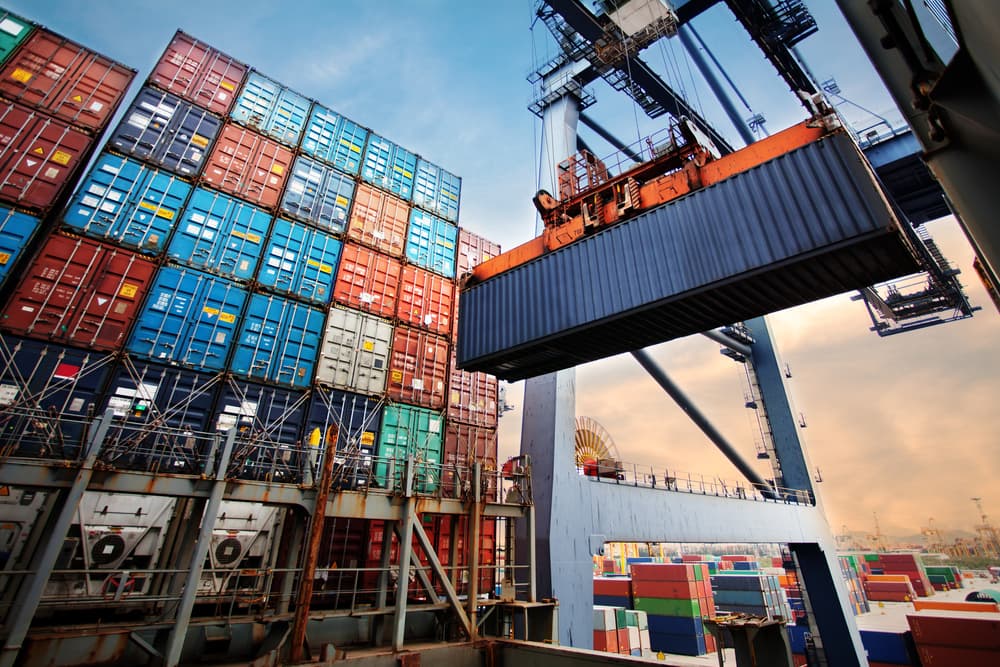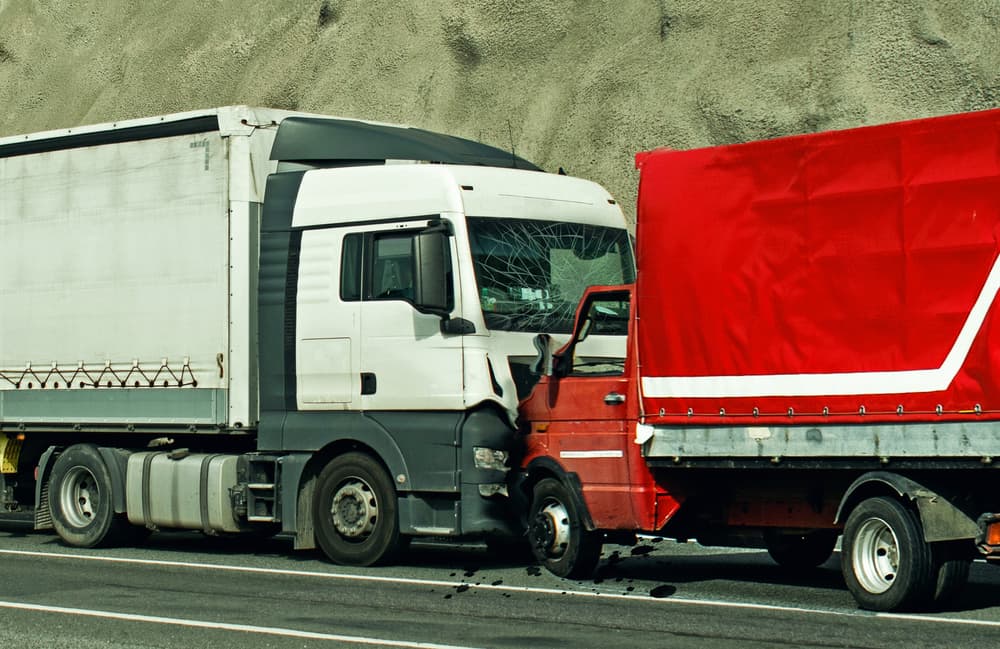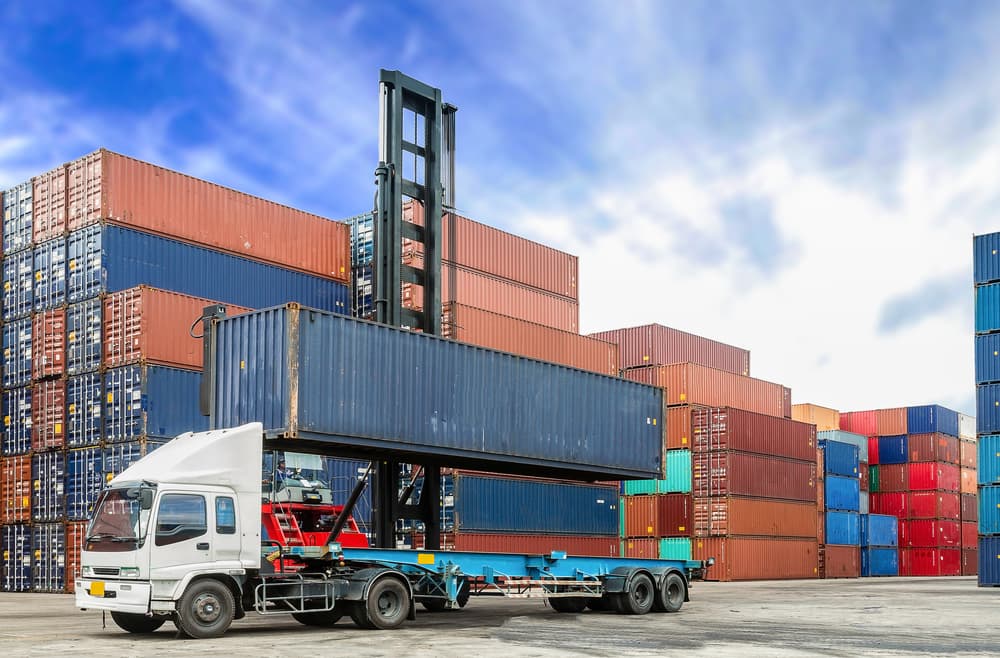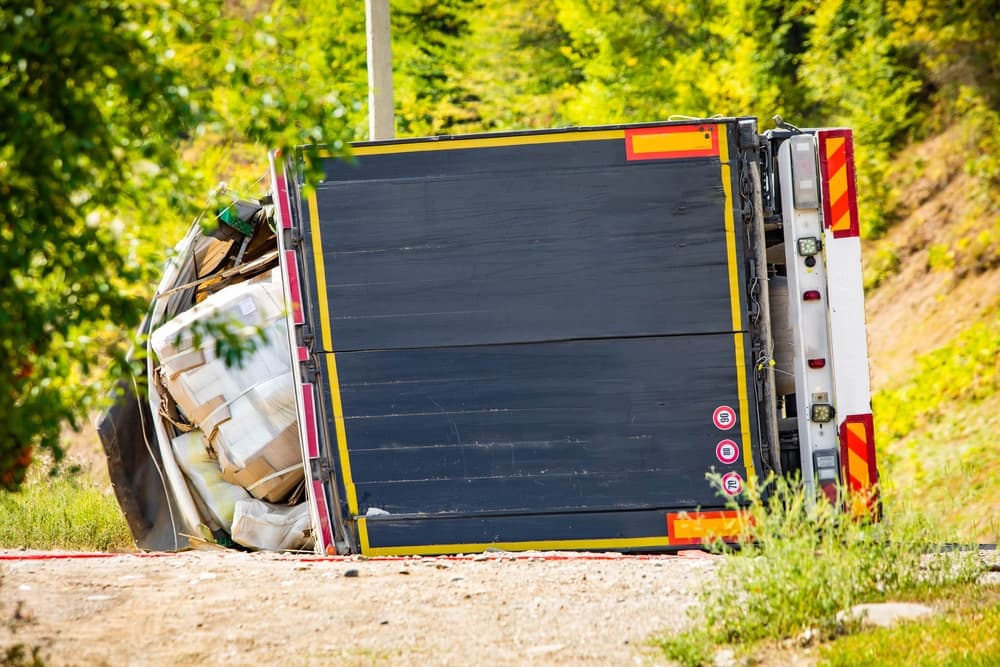Many truck accidents happen when drivers are negligent, such as failing to yield the right-of-way, exhibiting road rage, or engaging in distracted driving. However, at other times, the shipping company may be fully or partially responsible for a trucking accident. Shipping companies are primarily responsible for loading and unloading cargo and maintaining their vehicles. When they fail to do so, serious accidents may occur.
A knowledgeable truck accident lawyer will thoroughly investigate your accident circumstances and determine all potentially liable parties. They can also take all the necessary legal steps for you, including filing a claim or lawsuit and pursuing the compensation you deserve for your losses.
How Do Shipping Companies Cause Trucking Accidents?

Shipping companies play a significant role in keeping goods moving across the country, but sometimes, their actions or negligence can lead to serious trucking accidents. There are several ways that shipping companies may cause or contribute to these dangerous events.
- One of the most common causes of trucking crashes by shipping companies is improper cargo loading. When freight is not loaded correctly, it can shift during transit, causing the truck to become unstable, leading to rollovers, jackknife accidents, or difficulty in stopping the truck. In some cases, overloading a truck beyond its legal weight limit can cause the brakes to fail or the tires to blow out.
- Another major factor is poor vehicle maintenance. Shipping companies are responsible for keeping their trucks in safe working order. When a company cuts corners and fails to regularly inspect or repair their vehicles, trucks can break down on the road. Worn-out tires, malfunctioning brakes, or broken lights can all contribute to serious accidents.
- In addition, shipping companies sometimes pressure their drivers to meet unrealistic deadlines, which can result in drivers speeding, running red lights, or driving aggressively. When truck drivers are rushed, they are more likely to make mistakes that can lead to a crash. In some cases, shipping companies may also fail to follow hours-of-service regulations, designed to prevent driver fatigue. Forcing drivers to stay on the road for too long can lead to drowsy driving, one of the leading causes of accidents.
- Inadequate training for truck drivers is another way shipping companies contribute to collisions. Truck driving requires a high level of skill and knowledge. Companies that fail to properly train their drivers are putting everyone on the road at risk. Drivers need to know how to handle their trucks safely, especially in dangerous weather conditions or on difficult terrain.
- Finally, shipping companies may use unsafe or poorly maintained equipment, including trailers, flatbeds, and other machinery that may not be functioning properly. If a trailer is faulty or a piece of equipment malfunctions, it can cause the truck to lose control.
These factors, combined with the size and weight of commercial trucks, can make any accident much more dangerous.
Injuries That May Result from Truck Collisions

Trucking accidents resulting from shipping company negligence can result in a wide range of serious injuries. These injuries often occur because large commercial trucks are much heavier and larger than other vehicles on the road. When a shipping company’s negligent actions, such as improper loading, poor vehicle maintenance, or driver pressure, lead to an accident, the consequences can be severe.
- One of the most common injuries from trucking accidents is whiplash. Whiplash occurs when the neck suddenly jerks forward and back, causing damage to the muscles, ligaments, and tendons. Whiplash can lead to chronic neck pain, headaches, and limited mobility, requiring extensive physical therapy.
- Broken bones are also frequent in trucking accidents. The force of a collision with a large truck can easily fracture bones in the arms, legs, ribs, or face. Some fractures may be simple and heal with time, but others can be more complicated, leading to the need for surgery or long-term rehabilitation.
- Head injuries are among the most serious outcomes of a trucking accident. Head injuries can range from concussions to severe traumatic brain injuries (TBIs). A TBI can result in lasting cognitive issues, memory loss, and personality changes. In some cases, brain injuries can cause permanent disability, requiring ongoing medical care.
- Another devastating consequence of truck crashes is spinal cord injuries. These injuries can result in paralysis – either partial or complete – depending on the severity of the damage. Individuals with spinal cord injuries may lose the ability to walk, use their hands, or control bodily functions, requiring lifelong assistance and treatment.
- Internal injuries are also common. The sheer force of a trucking accident can cause damage to internal organs, leading to internal bleeding, punctured lungs, or ruptured spleens. These injuries may not be immediately visible but can be life-threatening without prompt medical attention.
In addition to physical injuries, many victims of trucking accidents suffer from psychological trauma. Survivors may experience post-traumatic stress disorder (PTSD), anxiety, or depression. These mental health conditions can affect daily life and may require therapy or counseling.
Proving That a Shipping Company Caused a Trucking Accident

Proving shipping company negligence in a truck accident case is essential for holding the company accountable and recovering compensation for damages. Negligence means the shipping company failed to meet its legal duty of care, leading to the accident. To prove negligence, you need to show that the company’s actions, or lack of action, directly caused the accident and resulting injuries. This proof requires strong evidence and a clear understanding of the legal process.
- First, you must establish that the shipping company owed a duty of care. Shipping companies are responsible for ensuring that their trucks are safe, their drivers are properly trained, and they follow all federal regulations. For instance, companies must ensure that cargo is loaded securely, vehicles are regularly maintained, and drivers do not exceed hours-of-service limits.
- Next, you need to demonstrate that the shipping company breached its duty of care. This breach can include improper loading of cargo, failure to perform regular truck maintenance, or pressuring drivers to meet unrealistic deadlines, leading to dangerous driving conditions. To prove breach of duty, various types of evidence can be helpful:
- Driver Logs – These records show how long a driver was on the road before the accident. If the logs reveal that the driver exceeded the legal hours-of-service limit, it can indicate that the company pushed the driver too hard, contributing to the accident.
- Vehicle Maintenance Records – These documents reveal whether the truck was properly inspected and maintained. A truck’s mechanical failures that should have been addressed through regular maintenance can point to negligence on the shipping company’s part.
- Cargo Logs – If the accident was due to shifting or improperly loaded cargo, cargo logs can show whether the company followed proper loading procedures. Overloaded trucks or unbalanced cargo can make trucks more likely to roll over or become uncontrollable.
- Surveillance Footage and Photographs – Photos or videos of the accident scene, including damage to the vehicles and the surrounding area, can provide valuable visual evidence. Surveillance footage from traffic cameras or nearby businesses may also capture the moment of impact, showing whether the truck driver was speeding or driving recklessly.
- Witness Statements – Eyewitnesses to the accident can provide testimony about what they saw. Their statements can help establish fault, such as whether the truck driver was driving aggressively or failed to follow traffic rules.
By collecting these types of evidence and working with an experienced truck accident lawyer, victims can build a strong case to prove that the shipping company’s negligence caused the accident and should be held liable for damages.
Ways of Successfully Resolving a Trucking Accident Case

When a truck accident occurs due to shipping company negligence, there are several ways to resolve the case and recover compensation. These methods include settling the case, taking the case to trial, or using alternative dispute resolution (ADR) options like arbitration or mediation. Each option has pros and cons, and the right choice depends on the specifics of the case.
- Settling the case is one of the most common ways to resolve a truck accident claim. In a settlement, the shipping company or their insurance provider offers an agreed-upon sum of money to compensate the victim for their injuries and damages. Settlements can be beneficial because they avoid the time, expense, and uncertainty of a trial. In many cases, both parties prefer to settle because settling allows for a quicker resolution. However, settlements may not always provide full compensation, and victims should be careful not to accept a low offer without consulting a lawyer.
- If the parties cannot reach a fair settlement, the next option is taking the case to trial. In a trial, both sides present their evidence to a judge or jury, who then decide whether the shipping company was negligent and what amount of compensation the victim should receive. Trials offer the opportunity to present a thorough case, but they are also more time-consuming and expensive. Furthermore, there is no guarantee of winning at trial, which can add uncertainty to the outcome.
- ADR methods, like arbitration and mediation, offer another way to resolve truck accident cases without going to trial. Arbitration is a more formal process whereby both sides present their case to a neutral third party (the arbitrator), who makes a binding decision. Arbitration is often faster than a trial, but the decision is final and cannot be appealed.
- Mediation is a less formal process in which a neutral mediator helps both parties reach a mutually agreeable settlement. Unlike arbitration, the mediator does not make a decision. Instead, they facilitate discussion and negotiation. Mediation allows both sides to control the outcome and is often less adversarial than a trial or arbitration.
Types of Damages You Can Recover in a Truck Accident Claim or Lawsuit

In a truck accident claim resulting from shipping company negligence, victims may be entitled to recover compensation for various damages.
- One of the primary categories of damages is lost income. If a truck collision prevents the victim from working, they can claim compensation for the income they lost. This compensation includes not only income lost while unable to work but also any potential future earnings (i.e., if the accident leads to a long-term disability or decreased ability to earn). For example, if an individual is unable to return to their previous job due to injuries sustained in the truck crash, they may seek damages for the income they will miss out on in the future.
- Another important type of damage is pain and suffering, which refers to the physical pain and emotional distress that a victim endures because of the truck collision. Pain and suffering damages can be subjective and are often calculated based on the severity and duration of the victim’s injuries. Factors such as the effect on daily life, the level of pain experienced, and the emotional toll resulting from the crash are considered when determining the value of this compensation.
- Emotional distress is a specific category that addresses the psychological repercussions of the accident. Victims may experience anxiety, depression, or PTSD due to the trauma of the crash. In these cases, damages may be sought to compensate for the emotional and mental anguish the accident caused. The effects can be long-lasting and may require counseling or therapy, even if not directly tied to physical injuries.
- Loss of life enjoyment is another significant damage category. This type of compensation recognizes that a victim’s ability to participate in activities they once enjoyed, such as hobbies or social interactions, may be diminished due to their injuries. If a victim can no longer engage in sports, travel, or other leisure activities, they may claim damages for this loss.
- Finally, punitive damages may be awarded in cases of gross negligence or reckless behavior. These damages are intended to punish the shipping company for its actions and deter similar behavior in the future. Punitive damages are less common but can be significant when the company’s negligence is particularly egregious.
A skilled truck accident lawyer will do everything they can to maximize the compensation you receive for your accident-related losses.
Speak to an Experienced Truck Accident Lawyer Today
If you recently sustained injuries in a commercial trucking accident resulting from shipping company negligence, you are not alone. A knowledgeable personal injury lawyer can discuss your accident circumstances with you, go over your legal options, and fight for your rights.
